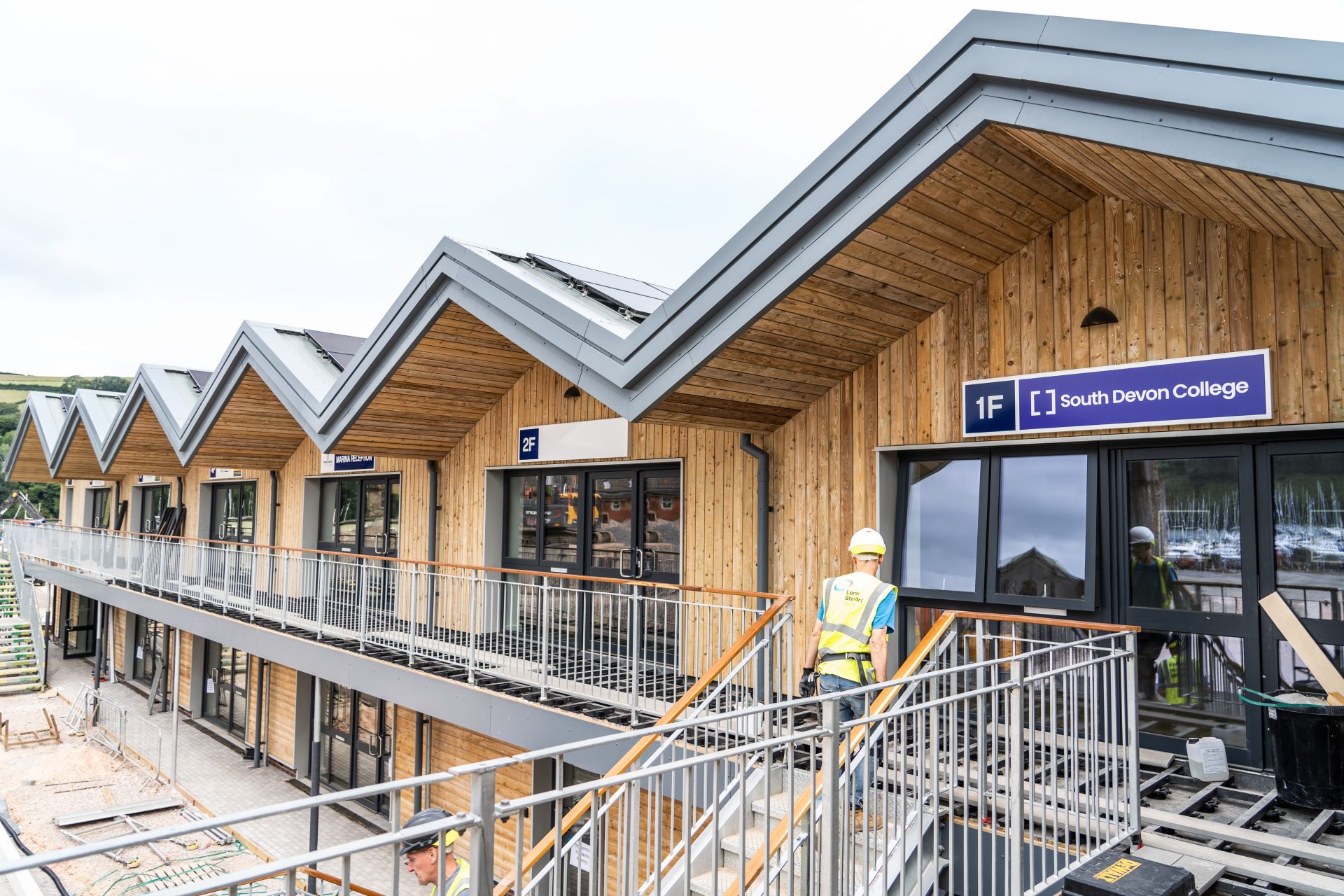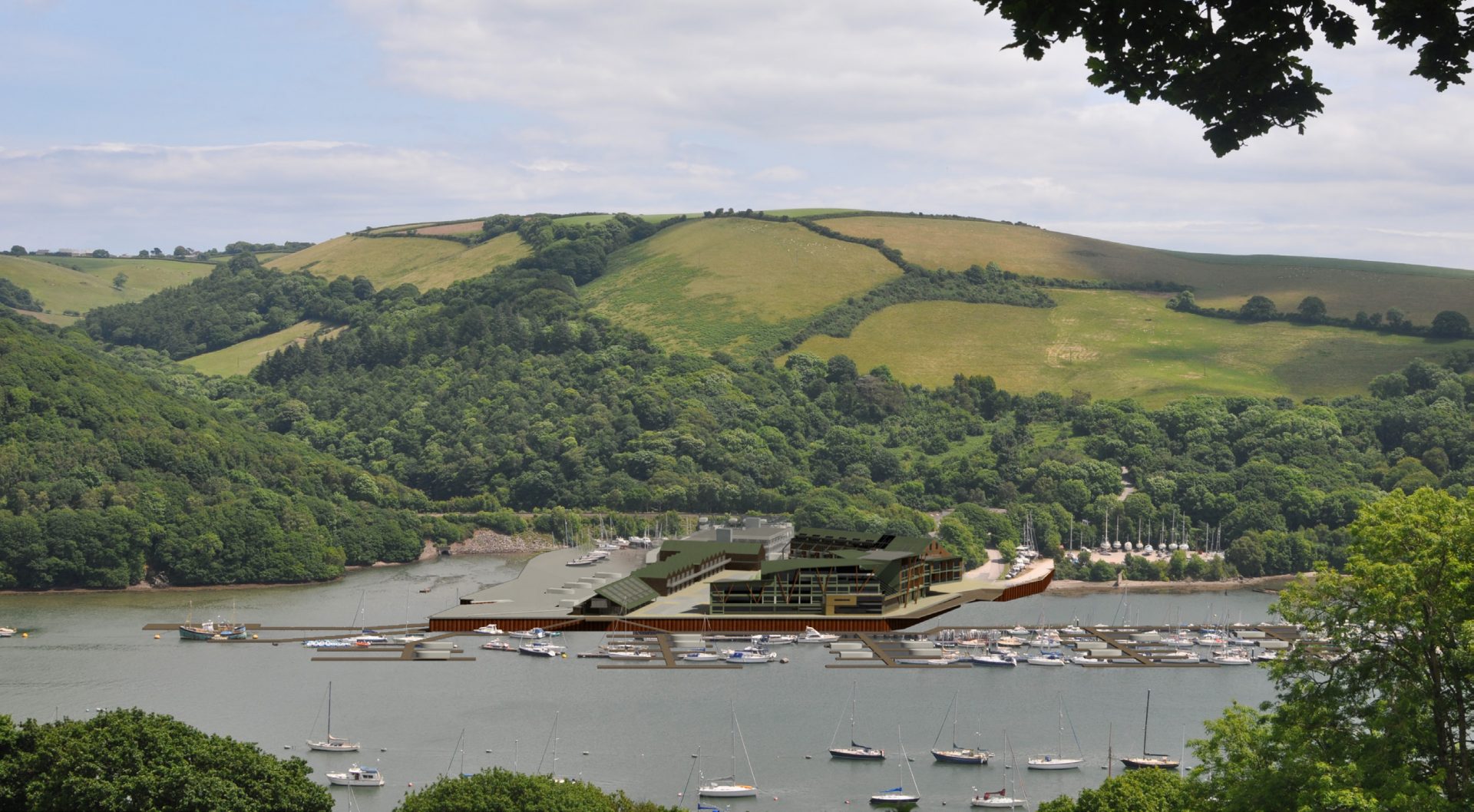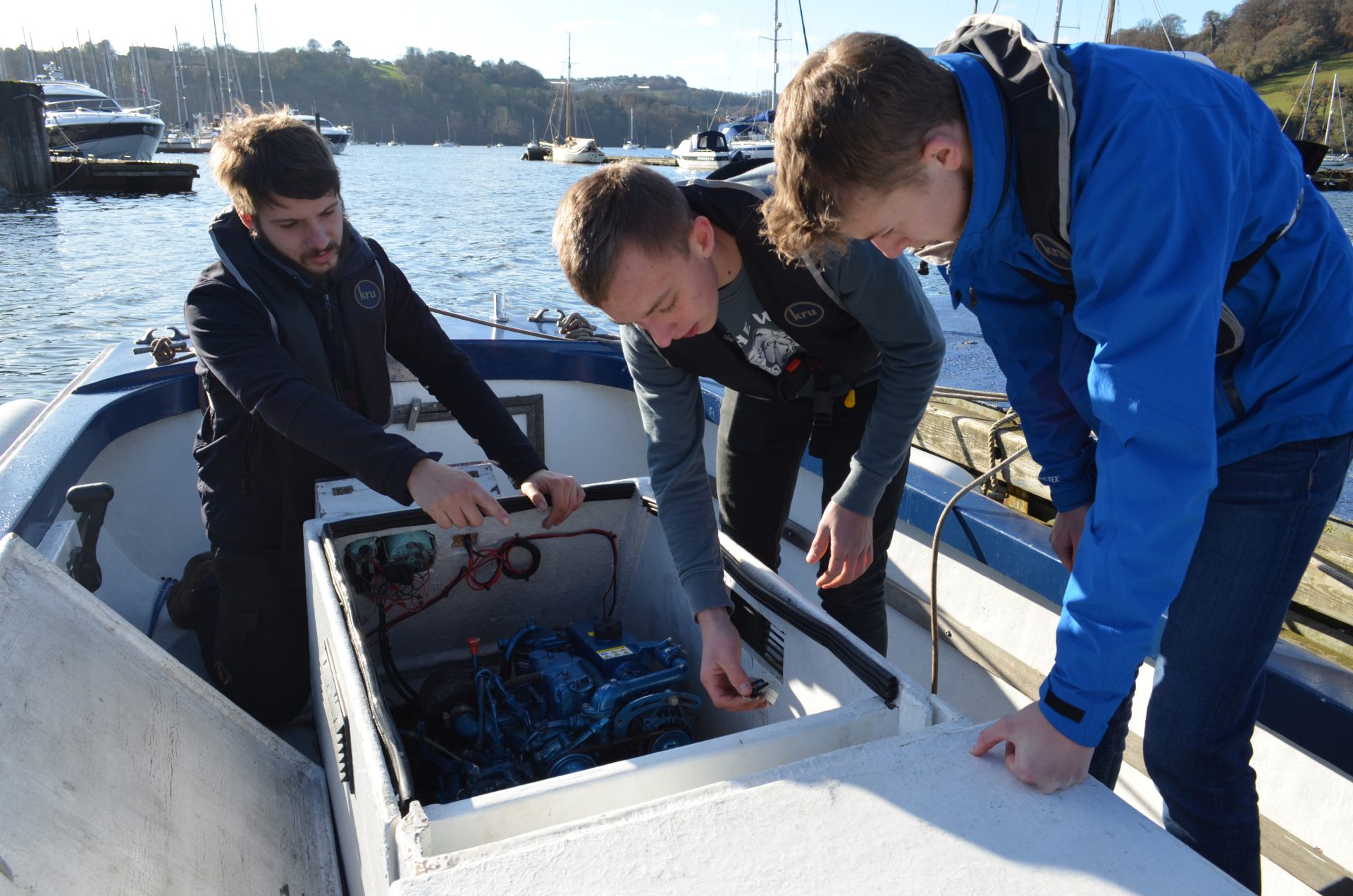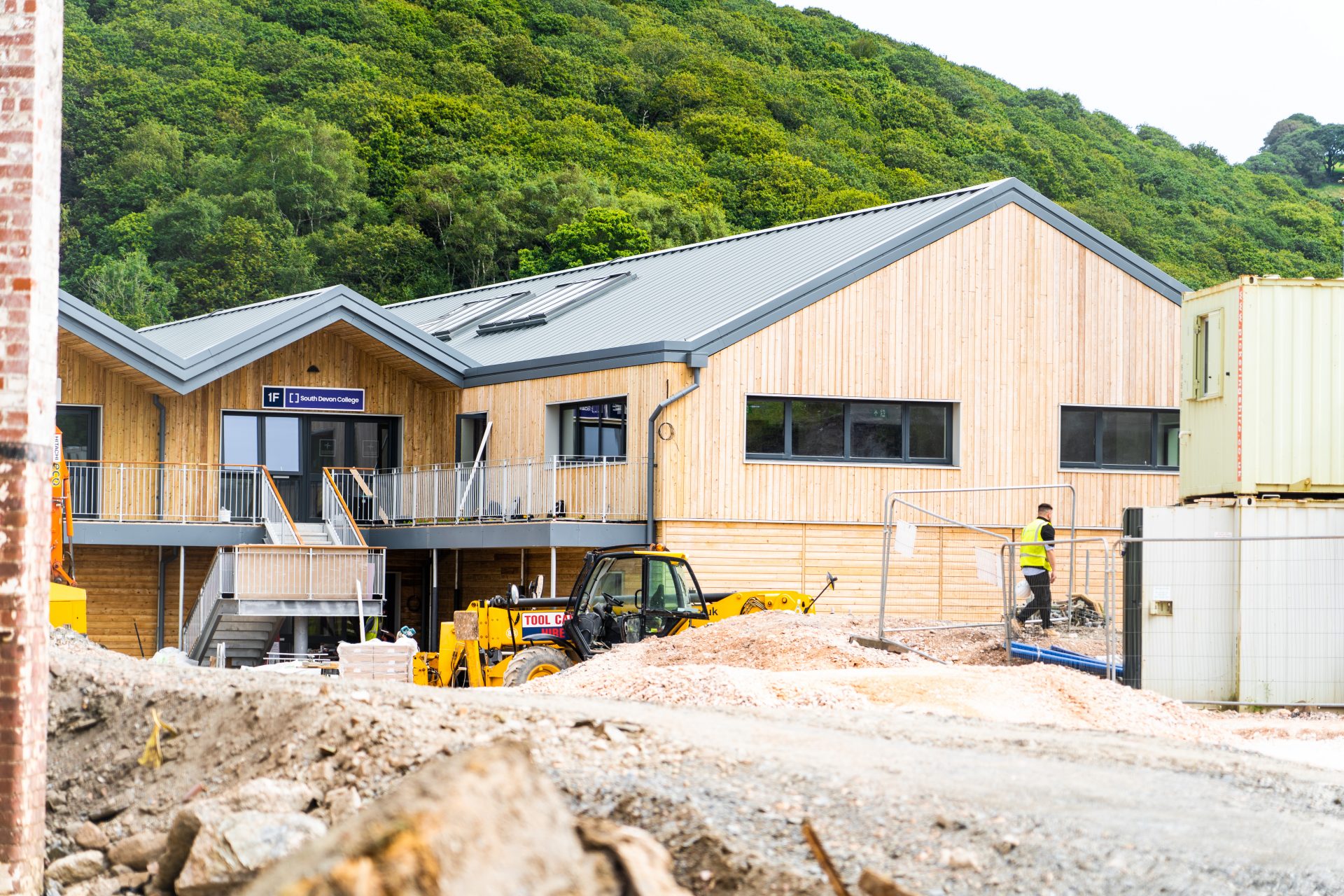5th October 2021
Discover how South Devon College is helping meet the demands of the changing marine and maritime sector.
Historically, Devon has been disadvantaged economically compared to other parts of southern England. The decline of several core industries, including mining and farming, have been mostly to blame.
But things are really looking up. South Devon has long been a key location within the marine and maritime industry in the UK, and today the connection with the sea is as important as ever.

The area has a rich maritime heritage, hundreds of miles of coastline, world-renowned research institutions and a large and growing network of sector leading, innovative marine companies.
This autumn, on a historic former ship building yard, in a £75 million development on the banks of the River Dart, the South Devon Marine Academy – part of South Devon College – opens its doors.
In the planning for 10 years, this state-of-the-art facility at Noss on Dart aims to close the skills gap and meet the demands of a changing marine and maritime sector.

Across the South West, approximately 30,000 people earn a living in the sector – and that number is set to grow.
Steve Caunter, Assistant Principal at South Devon College, explains: “The maritime sector is forecast to grow 15% by 2023.
“Maritime is one of Britain’s biggest industries, bigger than rail, air, agriculture and the creative industries. In 2017 it contributed over £46 billion in GVA and supported 1.1 million UK jobs.”
Working closely with the site owner, Premier Marina, and many stakeholders and partners, South Devon Marine Academy campus will be sited within the phase 1 commercial building and will offer its students a vibrant and flexible education, with strong industry relationships and be a centre of excellence within the maritime sector.
By offering students of all ages top-rate facilities, including a marine engineering workshop, research and design facility, innovation hub, navigation suite and a bridge simulator, as well as light, open-plan classrooms and break out rooms and easy access to the water, it’s hoped more people will choose this sector for their career.
Every element of the curriculum at South Devon Marine Academy has been designed around the needs of the marine and maritime sector and will deliver training in new and emerging technologies including autonomous vessels and electric/hybrid propulsion.
Autonomous vessels is a fast-emerging sub-industry in the maritime sector with projections that it will be worth $136 billion globally by 2030.

There is a myriad of full-time courses on offer at South Devon Marine Academy, from Level 2 and 3 courses in Marine Engineering, Maritime Skills to a brand new Commercial Fishing Apprenticeship (starting in 2022), alongside apprenticeships in Boat building, Warehousing and Composites to degree-level qualifications in Marine Technologies, Coastal Engineering and more.
Additionally, there is a comprehensive suite of short courses aimed at adults for reskilling or updating training. These include navigation, own boat tuition and electronic systems familiarisation composites, sea survival training and leadership programmes.
South Devon College Marine Academy is an RYA Training Centre, offering on-the-water training such as powerboat handling and VHF radio certificates.
Responsible for facilitating 95% of the UK’s global trade, maritime – probably without most people realising it – touches every part of everyone’s lives. Put simply, without maritime, half the world would freeze and the other half would starve.
From working at sea or in a port, designing a superyacht or navigating inland waterways, maritime is big business.
With the sector expected to double in size to $3 trillion by 2030, the industry needs the next generation to help shape its future.
For anyone deciding to pursue a career in the marine and maritime sector, there’s a range of highly-skilled, productive and well-paid jobs available. From commercial fishing or working on leisure boats, to inland waterways or ports and harbours, the sector is the lifeblood of the UK economy.
Every year, 65 million passengers and 500 million tonnes of cargo move through UK ports.
Plymouth port is one of the UK’s most historic, with a rich maritime history spanning many centuries. Today it contributes over £95 million to the UK economy, handling around 80,000 tonnes of cargo every year.

However, some areas of the maritime sector are seeing a great deal of change. Through the new Commercial Fishing Apprenticeship as well as other specialist programmes, South Devon Marine Academy aims to promote opportunities and support people moving into the fishing industry.
Steve Caunter says: “We want to support the south west sea fishing sector to enhance recruitment, retention and professionalism through a range of structured training pathways.
“The Academy will offer accessible training for entry to careers at sea, rigorous safety training, environmental awareness and leadership and management training.”
With state-of-the-art facilities, based at a stunning location on the banks of the River Dart, the South Devon Marine Academy aims to close the skills gap in the marine and maritime sector and help continue the historic connection the area has with the sea.
If you want a career in the maritime or marine sector and want to know how South Devon Marine Academy can help you achieve this, visit www.southdevon.ac.uk/marine.






